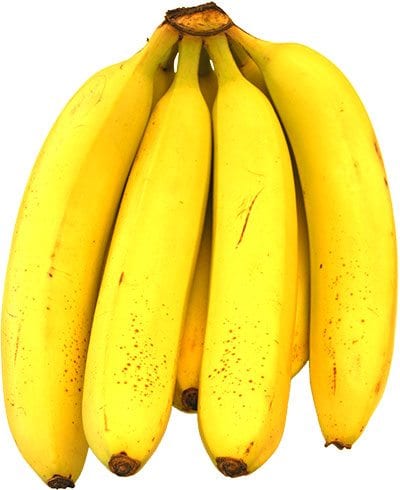

Bananas
An imbalance of sodium and potassium in the diet can increase the risk of high blood pressure and stroke.
Sodium gets a bad rap, but actually it is essential to health. Sodium teams up with potassium to regulate major body functions. Together they help nerves fire off to power muscle contraction. They help kidneys function properly. They are necessary for energy production. The team also regulates blood pressure. And that’s the problem.
Sodium and potassium are supposed to work in synch and provide balance, but the modern diet has become more sodium-heavy, pushing potassium to the rear. A diet low in potassium and high in sodium can increase blood pressure and ultimately the risk of stroke.

Avocado
Health professionals recommend a daily intake of 4,700 milligrams (mg) of potassium, but today’s diet hovers closer to 2,500 mg. Yet, it’s not that hard to consume the recommended amount. Potassium is readily available in all food groups, including fruits, vegetables, fish, meat and milk products. You just won’t find much in processed foods that have become a staple in many diets.
As an example, eat a baked potato with skin, a cup of cooked beet greens and three ounces of halibut or salmon for dinner and you’re more than half-way there. Throw in an avocado, banana, yogurt and orange juice and you’re close to the mark.

Orange Juice
People with chronic kidney failure, especially those on dialysis, have to limit their intake of potassium, however. Under these circumstances, it is best to consult with a physician to recommend a special diet.
It doesn’t mean you have to cut out sodium altogether. While increasing potassium, limit sodium intake to less than 2,300 mg a day.







